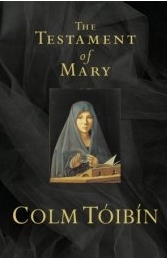 Title: Happy Hour in Hell (Goodreads)
Title: Happy Hour in Hell (Goodreads)
Author: Tad Williams
Series: Bobby Dollar #2
Published: DAW, 2013
Pages: 400
Genres: Fantasy
My Copy: ARC from Netgalley
Buy: Amazon, Book Depository, Kindle (or visit your local Indie bookstore)
Bobby Dollar is back, the angel that is sometimes known as Doloriel has advocated for the humans on heaven’s behalf more times than he can count. He goes to hell and back to fight for the souls of earth but this time he actually has to go to hell. His girlfriend a demon called Casimira (the Countess of Cold Hands) is been held hostage by one of the most powerful demons in hell, Eligor the Grand Duke of Hell.
First off let’s talk about the first question people are asking; why is an angel dating a demon? This is a question I’ve asked myself too, even in the first novel it seems weird. Best not to think of Bobby Dollar as an angel, he walks that fine line between good and evil but if you need an advocate you would want him on your side.
This is the second book in the Bobby Dollar series and if you haven’t read The Dirty Streets of Heaven then you really should. Bobby Dollar is as hard-boiled as they come. He will fight for good but he is not afraid to get down to a fight. I really enjoyed the first novel in the series and can’t recommend it enough, if you are looking for a dark gritty urban fantasy.
The thing I didn’t like about Happy Hour in Hell is there is a huge chunk of the novel set in hell, rather San Judas. I loved the world Tad Williams built and I’m just annoyed that he left it. Hell made for an interesting backdrop; the torture, violence and unspeakable acts that happen in this book really gives you a sense of what Hell must be like. Williams knows how to build a world but Hell isn’t as original as San Judas and not as interesting.
The other thing that bothered me about this book is that Bobby Dollar didn’t seem as hard-boiled as before. He used to be a strong, uncompromising type that would go to hell to rescue a damsel in distress but having a girlfriend made him a little soft. I’m not saying this is a bad thing but you look at the great hard-boiled detectives in history and there is always that flirtation with a femme fatale but they never seem to be the kind of person that settles down. They don’t want to put someone in the position where the woman could be in danger as a way to get control of them. They are often loners for this reason, better a woman is safe from harm than being happy. Having said that, I would love to know if there are any hard-boiled detectives that are in a relationship and are happy (that don’t end badly for the woman), I know people would probably say Nick and Nora Charles (The Thin Man) but I think of them as a crime fighting duo.
I liked Bobby Dollar when he was cold and bitter; I’m not sure if Tad Williams was trying to make him more likable or accessible but it made me hate him. So much so I’m not sure if I want to read book three when it comes out. I will see how a feel when it is closer to the release date in 2014. I love the hard-boiled urban fantasy blend and for me this was moving away from that style to the straight fantasy style he is better known for. Bobby Dollar is a great character and I hate seeing what has happened to him; hopefully book three is different.

 Title: London Falling (
Title: London Falling ( Title: Player One (
Title: Player One ( Title: The Mysteries of Udolpho (
Title: The Mysteries of Udolpho ( Title: Longbourn (
Title: Longbourn ( Title: The Pillars of the Earth (
Title: The Pillars of the Earth ( Title: My Notorious Life by Madame X (
Title: My Notorious Life by Madame X ( Title: Golden Parasol (
Title: Golden Parasol ( Title: The Testament of Mary (
Title: The Testament of Mary ( Title: The Castle of Otranto (
Title: The Castle of Otranto (